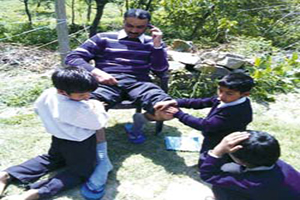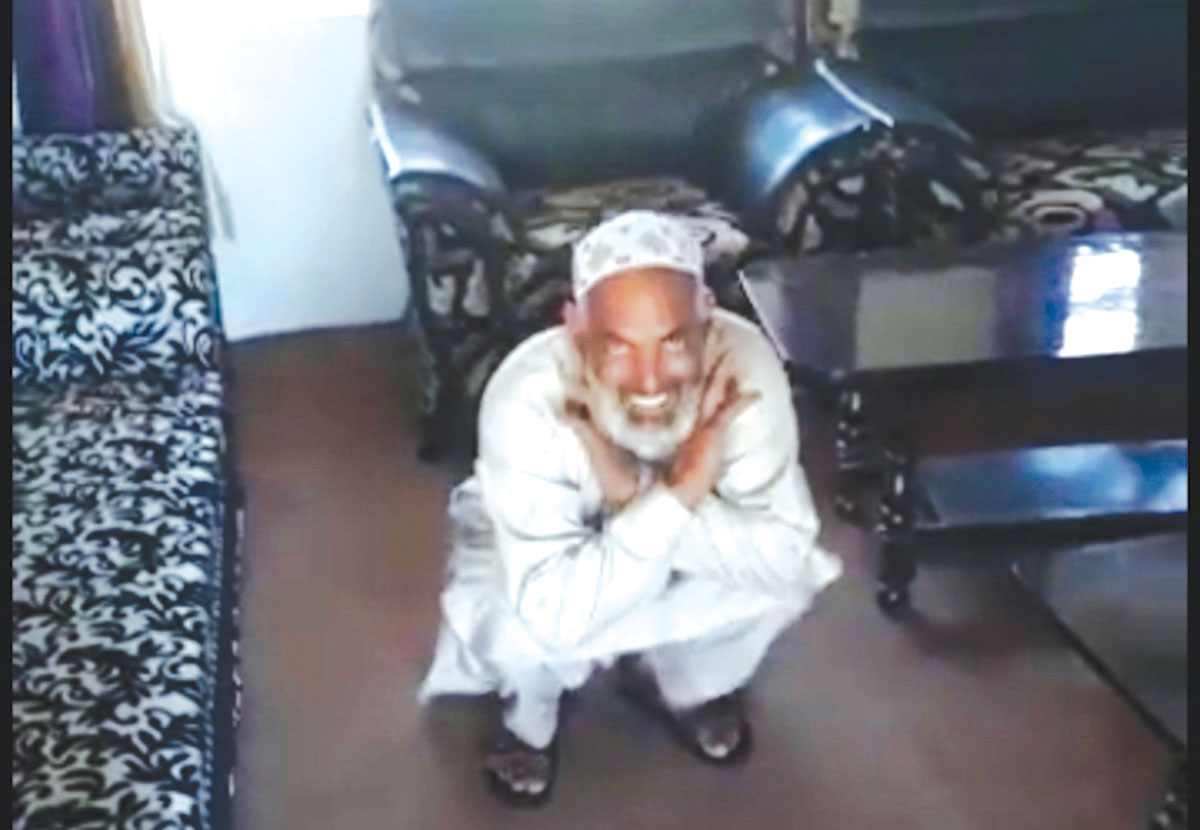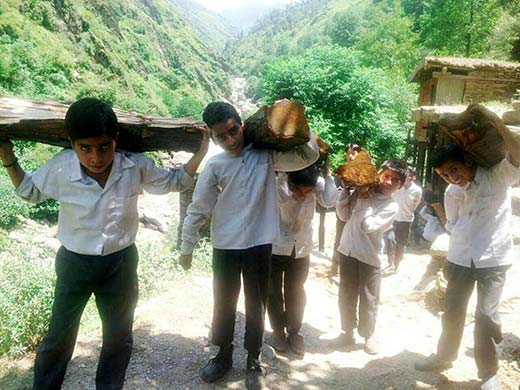by Mujahid Mughal
Brad Henry defines a teacher as the person who can “inspire hope, ignite the imagination, and instil a love of learning” in his students. Inspiring hope, igniting imagination and imbibing the love for learning is not an easy task to perform. It indeed is the greatest feat any human being can fetch. Nonetheless, a teacher is expected to do this.

In fact, a teacher is meant to possess all these qualities at any cost. And the bedrock on which these characters can be built in a teacher is love; immense and unconditional love for the students. At the risk of being called a lunatic, let me reaffirm that teaching is all about having immense and unconditional love for the students.
Everything else is secondary. Because everything else comes afterwards.
There is nothing like “good education” or “bad education” and education is just education – a complete term in itself. In a similar fashion, there is nothing like a good teacher or a bad teacher, there is just a teacher. A term very much complete in itself. And I am a teacher. That is how I would always define myself.
A teacher, I firmly believe is a person, who may or may not be capable of answering all the questions raised by the students in the classroom on a specific subject but who attempts at understanding his/her students, the challenges they face in the classroom and outside, their specific needs and subsequent attempts at providing them methods and tools to deal with them. And all this can be done only when the teacher has immense and unconditional love for the students.
 Having said that, I also wish to express that teaching, as a profession is nothing but a process of constant learning. Learning in the classrooms and outside the classrooms.
Having said that, I also wish to express that teaching, as a profession is nothing but a process of constant learning. Learning in the classrooms and outside the classrooms.
Here, I accept that I have learnt a great deal from students I taught. Thankfully, I never let the classrooms to be a place where only I spoke.
Nonetheless, many people have told me that many students look up to me for various reasons. Let me admit that it gives me pleasure and happiness when I meet such people. But what makes me happier is when I receive negative feedback from the students and from their parents. That is what I have always tried to receive.
Knowing well that a student would not dare that easily to criticize a teacher in the classrooms due to different inhibitions, I sometimes try different methods to make them speak. In this regard, I am reminded of two incidents wherein I succeeded to some extent in making them speak their heart.
In the semester III and Semester I of 2018, I asked them to write a minimum of 5 negative points on my classroom teaching in Urdu, Hindi or English. I left the classroom, immediately after letting them know that they are not allowed to write their roll numbers, names or any other information, which may lead anyone to identify them. I asked one of them to collect the feedback papers. I was happy to see a few complaints, which I immediately started working upon, after discussing them back in the class.
In another attempt, I threw an open challenge to the semester II students in 2017 that if anyone can point out a negative in our teaching-learning process on my part, he/she will be rewarded with two grace marks in the internal examinations. Eventually, I succeeded once again. A few students were rewarded for the same.
Although I have always believed that all I am better in the classrooms than at any place in the world, but it has always amazed me to know that the students can look up to a teacher who has taught them for a very short time. This is pleasing but at the same time, not something extraordinary to be celebrated. Students do look up to their teachers. That’s what teachers are meant to be.

What actually makes me happier is that in a state (J&K) which is run under “single line administration” and where administrators and politicians every now and then ridicule teachers in all possible ways, sometimes by forcing them to lick their saliva, sometimes by forcing them to do sit-ups for “non-compliance”, sometimes by appointing Patwaris to supervise them and at other times by summoning a registrar of the reputed university to the district offices for the internal affairs of a university, many students still look up to their teachers.
It is indeed a good sign that many students are still not affected that much by the superficial exhibition of power and corruption by politicians and bureaucrats in a state where teachers have never been paid at par even with the class IV employees. I am happy that many students still want to be like their teachers and many others want to be teachers themselves, in a state where the education department is considered like any other department. Say, the traffic department.
Keeping this in mind I want to convey to those students who look up to me a few points, which they should keep in their minds for making this world a better place. Nonetheless, this piece will remain incomplete, as I too will be learning more with time and experiences. Therefore, I will continue to write and speak on it all my life.
- Don’t believe in everything your elders, teachers, state and society wants you to believe in. Challenge every old idea with a new one.
- If you claim to be a believer in any faith or in any organised religion, rediscover it. You shouldn’t be a Muslim, a Sikh or a Hindu just because your parents are Muslims, Sikhs and Hindus. The reason is what you need to apply everywhere, all the time.
- Do not involve yourself in the unnecessary religious and political controversies until you complete your education. Stay focused on your goals. But that doesn’t mean you need to stay away from progressive politics that affects each one of us.
- Remember, the quantity and quality of your friends are directly proportional to your educational attainment and position in society. So your studies must be the first and foremost priority. Everything else is secondary.
- However, if you are better at something else like music, sports, farming, business etc than your BA/ B Sc courses, follow your dreams. Just be sure enough to make a living out of it.
- Do not indulge yourself in “teacher politics” at any level, ever. But do participate in productive politics for the development of your institutions and society as mentioned earlier. You actually must not be a pawn in teacher politics.
- As we are aware that the Internet is drowning us all like a flood. So we can’t hide under the bed to save ourselves from this flood. You must know how to swim in it. Make an efficient use of the Internet to pursue your goals. We can’t ignore the role of technology, especially of information technology in our lives.
- It is important that you respect your teachers, elders, parents and friends. In fact, respect every human being regardless of his/her race, culture, nationality or language. But respect all of them for their behaviour and work and not their age or positions.
- You must try hard to save yourselves from the selfie-culture, very much prevalent in our region, Pir Panchal. I swear that I want you to become greater men and women than the people you feel proud clicking selfies with. Believe me, none of them can ever be as great as you can be.
- You ought to strike a balance between your academic life and socio-personal life. We being the social beings cannot afford the luxury of wasting either of the two. Enjoy life to the fullest. Enjoy each and every moment of your life. Because Death keeps no calendar.
- However, I suggest you stay away from the thugs who want to divide you on the basis of religion, gender and caste. Stay away from Gujjar-Paharhi, Kashmiri-Non Kashmiri, Hindu-Muslim nuisance.
- If possible, stand up for justice and truth in whatever positions you are. As a World citizen, as a family member, as a friend and as a man of God. Because injustice to one is an injustice to all.

Mujahid Mughal - Do not become a victim of xenophobia, Islamophobia and do not let your looks decide what you are. Humanity exists beyond colours, boundaries and races. Don’t judge people on the above-mentioned adjectives. Do not judge people at all.
- Remember, knowledge is power. So try reading at least one newspaper daily in English and another in any other language you are comfortable with. Be aware of the happenings around the world. Because we are going to be affected by every mishap anywhere in the world in one way or the other. While reading the newspaper do not forget to use standard dictionaries. The present age is the age of social media, and most of us fail to make good use of it. For staying up to date you may subscribe to various regional, national and international news outlets and magazines on social media to stay informed.
- While we know that no language is superior to the other and many of the greatest scientific, philosophical, literary and artistic works were carried out in the vernacular languages but we should keep in mind that English is important. It is the language with which you can earn a livelihood anywhere in the world. Nonetheless, you ought to learn how to speak and write good English and also learn to be presentable and it doesn’t matter how good you are at it now.
- Being arrogant reflects our inferiority complex. Stay humble and I assure you that one day you will win the world.
- Remember, hard work always beats intelligence. There is no substitute for hard work. And there is no age to learn, relearn and unlearn.
- Criticize each and everything and everyone you come to know about, including me and the above-mentioned points. However, always make a difference between abuse and criticism.(Author is an Assistant Professor in the Department of Geography, at GDC Poonch, J&K. Ideas expressed in this essay are personal.)
















